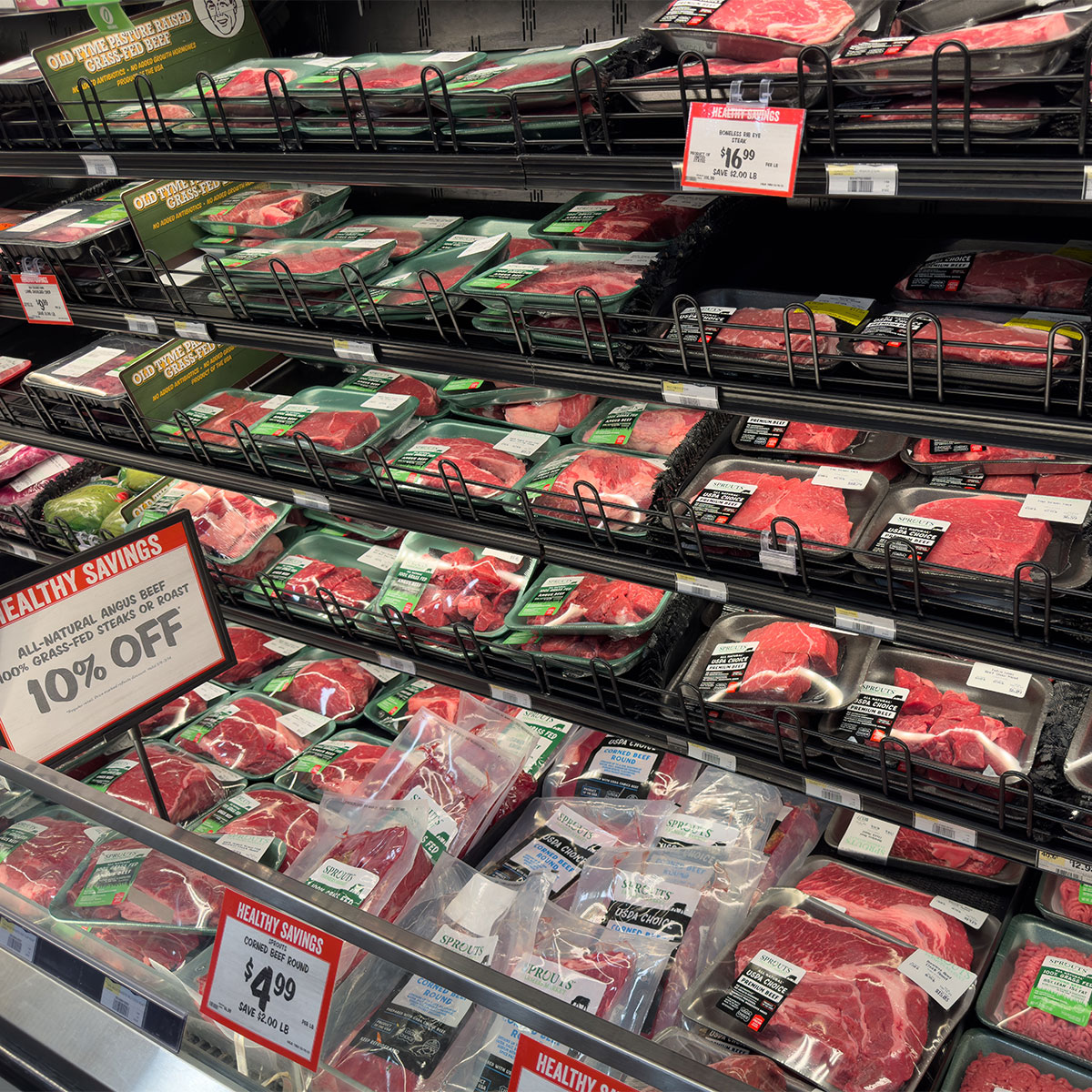
Red meat
There are many reasons to limit your intake of red meat, including the fact that it could be detrimental to your heart health. As it turns out, Richards says this type of meat may also throw a wrench in the health of your gut.
"Diets rich in red meat, particularly fatty cuts and processed meats, can promote the growth of harmful gut bacteria and increase inflammation in the digestive tract," she warns. "These proteins are often associated with an increased risk of conditions like inflammatory bowel disease and colorectal cancer." Yikes!
For this reason, swapping red meat and processed varieties with fresh, lean meats as often as possible is always a good decision for your health.
Processed protein sources (bars and powders)
If you're frequently looking for ways to fit more protein into your diet and smash all of your fat-burning workouts, you may keep protein powder and protein bars on hand. Unfortunately, these processed products come with their fair share of downsides. Richards says we can add a risk of digestive issues to that list.
"Processed protein sources, such as some protein powders and bars, might contain additives, artificial sweeteners, and preservatives that could disrupt the balance of gut microbiota and trigger digestive discomfort in some individuals," she tells us.
Whenever possible, it's always best to get your protein from whole foods instead.
The bottom line
Ultimately, everyone's body is different, which means what's detrimental to one person's gut may be just fine for yours. For this reason, the best way to figure out what works for your own digestive system and what doesn't is to pay close attention to how your body responds to certain foods. However, red meat and processed protein are two common culprits of digestive issues to keep in mind.
"While moderate consumption of these proteins might not necessarily harm gut health for everyone, it's generally advisable to prioritize lean, minimally processed protein sources like poultry, fish, legumes, and plant-based options." Richards concludes. Got it!


